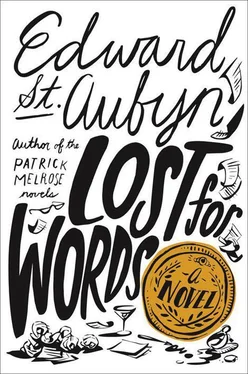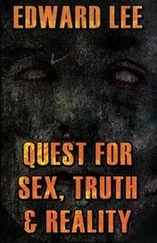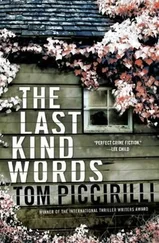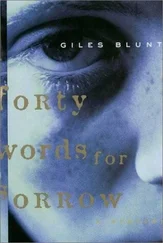Alan realized that he had really been fired for making Yuri jealous. To be punished for his intimacy with Katherine just as she ceased to acknowledge his existence deepened his sense of injustice. Not only had the incompetence over the typescript not been his, the competitiveness with Yuri had not been his, and now the intimacy with Katherine was not his either. Yuri, on the other hand, could count on Katherine’s meticulous thank-you notes and prompt replies, and the fact that she would eventually be persuaded to stay at Page and Turner by another preposterous advance for a still more distant book.
Without his salary, Alan could no longer afford his room in the Mount Royal Hotel. He had guiltily handed over his savings to his abandoned wife, but he still had enough money in his current account and a good enough credit record, he hoped, to rent a room somewhere in outer London. He told the hotel that he was leaving, but to his surprise, on the morning of his departure he was suddenly overcome with lethargy. He wanted to be practical, to search for a room to rent, but somehow everything was too much, and he sprawled on the bed all morning, dressed but unable to leave. He tried to rationalize the feeling as a need for the hotel’s central location, the convenience of a single bill compared with a plethora of household bills, broken boilers and toasted toasters in a rented room, but the truth was that he felt terribly tired. Why not stay a few more days? He had three credit cards, after all, with a combined overdraft capacity of fifteen thousand pounds. Perhaps, in the end, the best thing to do was to stare at the ceiling of his bedroom and sleep as much as possible. If only he could get to sleep, he would sleep for a thousand years.
At first Alan resisted the cliché of an unshaven depressive, but then, reflecting bitterly that he was no longer being paid to uproot cliché, he abandoned shaving with a certain vicious pleasure. The initial energy of his self-neglect depended on a barely acknowledged theatricality: he expected someone to notice, to be shocked, to offer to wash his clothes or run him a bath, but after a week or two his expanding sense of loneliness vaporized these imaginary friends. His actions were no longer gestures, and without the incentive to communicate, they were engulfed by his all-consuming fatigue. As he lay on his bed, the basin seemed so far away that the idea of brushing his teeth made him think of Livingstone’s search for the source of the Nile. He imagined the terrible mountain ranges of his yellow bedspread; native bearers falling off the cliff of his mattress with piercing cries; the delirium of a tropical fever; his excruciating boots slippery with blood; the forbidding overhang of smooth white porcelain in the final ascent. He was so small that he might disappear at any moment, so little able to move that the inertia might spread to his heart and stop it beating.
There was a sheer fall, not at the end of things where it belonged, at the end of thought, or language, or at both ends of the visible spectrum, like horizons to our cognitive capacities, elegant, expected, almost reassuring; there was a sheer fall in between the things he used to take for granted, between instinct and desire, between desire and will, between will and action, between this and that, between one thing and another; gaps, crevasses, open wounds, broken circuits. How could he not have noticed before? What had he been doing all his life? Zipping along as if the ground were not groundless. He was like a toddler who has just been taught the word for something ubiquitous, and sits in his chair on the motorway, saying ‘car’ every time there happens to be one in view.
After two weeks the hotel management insisted that he let the maid in to clean the room. Alan, who had not eaten for several days, found that his aversion to staying in the room with the maid outweighed his aversion to moving at all, and so he went out, bearded, dishevelled, unwashed, and muttering his new word, ‘Gap … gap … gap,’ as he hurried hungrily down the street, close to the railings, avoiding the cracks in the paving stones.
The text that was dominating Vanessa’s thoughts, as she sat at home, looking out at the bird feeder hanging from the apple tree in her back garden, was not one of the Elysian Prize submissions, nor indeed was it the PhD thesis she was supervising, in which the semi-colon had just arrived obscurely from Italy and was being disseminated into English literature by the erudite Ben Jonson; the text she couldn’t get off her mind was written by her daughter.
In a perversion of filial piety, Poppy had asked Vanessa to use her critical skills to improve the little manifesto she was writing for a ‘pro-ana’ website, extolling the hidden ecstasies of her suicidal eating disorder. Vanessa felt that her relationship with her daughter had now gone irretrievably through the looking glass — the very same looking glass in which Poppy saw her skeletal and hirsute body as a repellent mass of white flab. The piece was hand-written, with no corrections, in a pink notebook, with a brass clasp holding its covers together. It rested on the small round table next to Vanessa, looking more like the diary of a fourteen-year-old girl than the exercise book of a grown woman. Vanessa didn’t need to read it again, couldn’t face reading it again. It was a defiant prose poem on the subject of emaciation and the beatitude of extreme hunger, the ‘breakthrough’ when the ‘gherlin gremlin’ (gherlin, it turned out, was the hormone for hunger) turned into ‘the radiance’, the single-pointedness, the febrile quickness, ‘the humming wire’. Ranged against these incisive mental joys was the cunning enemy and intolerable temptation of food, as if every scrap were as tragic as Eve’s first bite of the forbidden fruit — a fall, a rush of shame, an exile from the luminous sphere of control and self-sufficiency; a self-sufficiency that would one day go beyond the rejection of food and liquid, and perfect itself by discarding air as well.
If only this constriction in her chest and throat could be expressed in tears, but Vanessa had never found it easy to cry and she knew that there was little point in looking for relief in that direction. She heard the front door open and close. It was Tom, who was at home revising, coming back from a ‘walk’. There was no point in greeting him, or offering him anything. He always returned from his walks reeking of grass and bolted back to his bedroom as soon as he came in. The boy in the coma from the ayahuasca weekend had died, but far from making Tom wake up from his stoned life, it seemed to have become the pretext for smoking elegiac joints with mutual acquaintances. He had asked Vanessa to recommend a poem he could read at ‘a kind of wake thing’ they had organized.
‘I didn’t really know him,’ Tom told her. ‘But it was really bad luck. It must have been some sort of allergic reaction — I mean everyone else had an amazing time.’
‘You can’t imagine how happy it makes me to hear that,’ said Vanessa, with what she assumed was devastating sarcasm.
‘Yeah,’ said Tom with a survivor’s laugh. ‘I could have done without the snakes. I mean there were snakes everywhere , coming out of the walls, out of the eye of the little cockerel in the cornflakes package, pretty weird stuff, but then they kind of died away and it was all about light , about everything being basically light .’
She was reluctantly flattered that he chose to share his hallucinations with her, but only in the context of being appalled that he was cultivating hallucinations in the run-up to his A-levels. She felt parentally paralysed; anything Tom did could be cast in a recreational or exploratory light compared to his sister’s illness. Besides, hadn’t she and Stephen taught him that the best way to secure their attention was to be in trouble?
Читать дальше












